By Joseph Kellard
If John Feal says he'll give you one of his body parts, take him at hisword.
Last September, Paul Grossman, a 20-year FDNY volunteer EMT-firefighter, e-mailed Feal seeking a link to the Web site of his organization, Fealgood Foundation, which assists 9/11 first responders who suffer medical problems related to their search-and-rescue efforts at ground zero.
Grossman told Feal that he would have been at ground zero on Sept. 11, 2001, if he hadn’t been on dialysis and on a kidney recipient list. Feal replied that if Grossman needed a kidney, he’d give him one of
“He thought I was kidding,” Feal recalled about their e-mail exchange, a printed version of which now hangs on his refrigerator. “After three or four days of convincing the man that this wasn’t a cruel joke, we went to New York Presbyterian Hospital to see if we were a match, and we were compatible.”
Feal told this tale on Sept. 5 at another hospital, South Nassau Communities Hospital in Oceanside, following a pin ceremony that honored him and several other fellow 9/11 first responders -- firefighters, police officers, EMTs and even a demolition supervisor like himself -- who riskedtheir lives after the terrorist attacks that left the World Trade Center in smoldering ruins six Septembers ago.
Feal was recovering from an operation less than a week earlier in which his kidney had been removed. After having his name called and walking through the hospital’s lobby atrium to accept his pin, Feal steppedgingerly, due to what he described as perhaps the worst pain he had ever experienced. This from a man who walks with a limp after a multi-ton steel beam crushed his left foot at ground zero and left him in a hospital bed for 11 weeks, suffering with gangrene before half of his foot was amputated.
“Why wouldn’t I?” Feal, 40, said matter-of-factly about donating his kidney, as if he were parting with, say, a favorite dress shirt. “I’m giving the gift of life. I’ve never won Lotto; I don’t know that feeling. But thisfeeling is pretty good.
“I’d do it again,” Feal continued. “If my body was like a Pez machine for kidneys, I’d be popping them out.”
Feal was one of a few pin recipients who addressed the crowd at the ceremony, which drew mostly fellow first responders and their families. Among the speakers -- including state Sen. Charles Fuschillo, SNCH President Joseph Quagliata and Freeport firefighter Ray Maguire -- who thanked them allfor their search-and-rescue efforts was a survivor of the attacks. Mark Goldberg was working on the south tower’s 22nd floor for First Montauk Securities that morning. Last Wednesday, Goldberg stood in SNCH’s atrium -- whose walls are adorned with memorabilia such as a 9/11 construction worker’s jacket and paintings of nature scenes by children whose parents were killed that day -- and recounted how he and other WTC employees filed down a stairwell in terror.
“People were depending on each other to make it down,” Goldberg said. “And on the left side, coming up the stairs, were people like you, emergencypersonnel.
“Saying thank you doesn’t come close to the words that need to be expressed from the bottom of my heart,” Goldberg said.
One first responder, Scott Belten of Franklin Square, has always declined invitations to ceremonies that honor 9/11 workers -- except those hosted by Home Ground, a free counseling and outreach program for 9/11 first responders and their families, which hosted the ceremony at SNCH. “I don’t do ceremonies because it’s sort of something I want to put behind me, and also I felt that people were honoring me for doing my job,” Belten said.
But he attends the Home Ground ceremonies because without the program, he said, he would be unable to function as well as he does today. Established with a federal grant in 2002 and sustained through the American Red Cross, South Nassau and private donations, Home Ground has worked with nearly 4,000 WTC rescue and recovery workers and their families.
“Going to Home Ground was the first step on this long road to healing,” Belten said.A paramedic with Maimonides Hospital in Brooklyn, Belten and other EMTs used the neighboring Marriott as a shortcut to the south tower on Sept. 11 to avoid its raining debris. Seconds after a piece of debris hit Belten’s hand, the tower came down on top of the hotel. Belten escaped, and helped assist others who were injured, but the injury he sustained proved serious.
Since 9/11, Belten has had multiple operations and has lost most of his fine motor skills, making it nearly impossible for him to tie his shoes, write or type, and he also has trouble breathing. “Some days I can’tfunction at all,” he said about his degenerative condition. When he walked up with his wife and children to accept his pin, he said later, he had to hold back tears. “It was a great experience,” he said. “It’s very moving, and I’ humbled by it and that people still thank me after all this time.”
Alan Beach of Lynbrook, a retired FDNY lieutenant who spent 20 years fighting fires, awarded the ceremonial pins to each of the dozens of hisfellow 9/11 first responders. Beach recalled the “total chaos” at the WTC, to which he tried to bring some order by commanding a staging area.
Unlike Belten, however, Beach attends 9/11-related ceremonies whenever he can, he said. “The situation is that, I feel, this country is starting to forget,” he said. “It’s like everything else after a while, and time mostlyheals wounds. But this is a wound that shouldn¹t be healed because of a lot of the things that happened that day.”
Please post a comment about this article. For private comments, email Joseph Kellard at Theainet1@optonline.net.
Copyright © 2007 Joseph Kellard
Tuesday, September 11, 2007
Subscribe to:
Post Comments (Atom)

























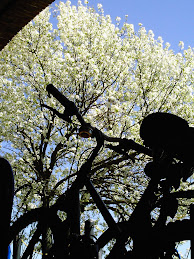



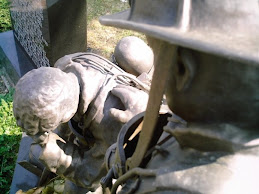
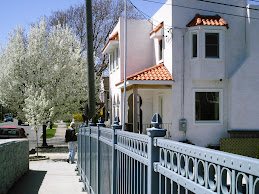
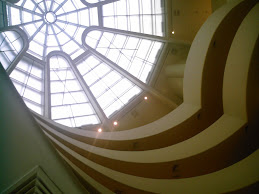+-+June+2009.jpg)


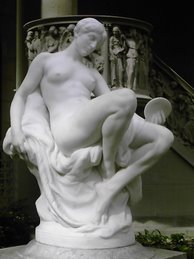


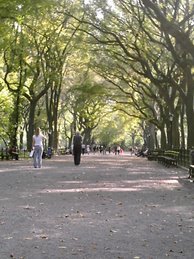


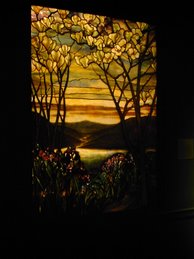


No comments:
Post a Comment